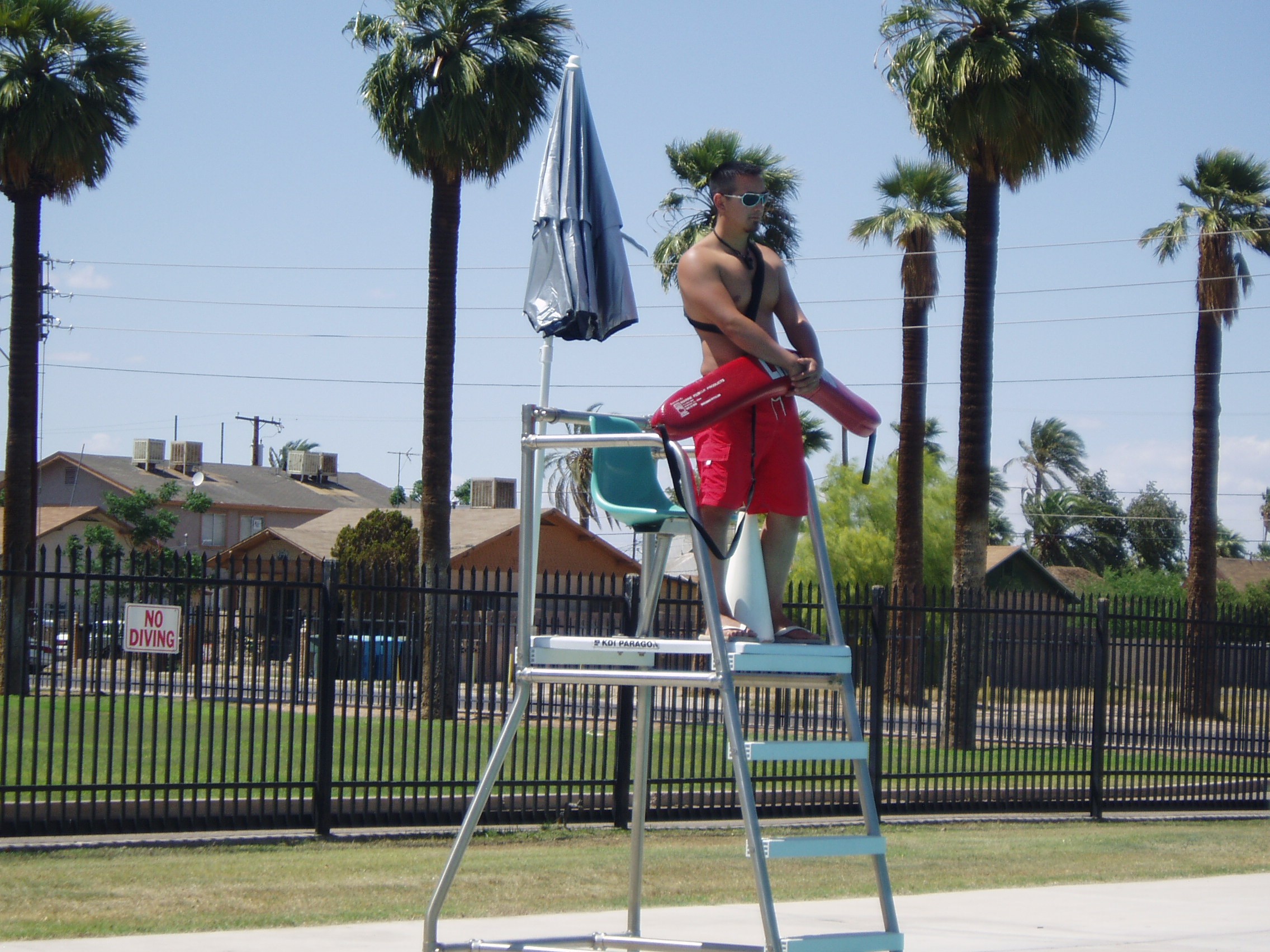Category: Training
City of Phoenix Aquatics
Phoenix, Ariz.
Year Awarded: 2015
The mission
There’s a paradox in lifeguarding: They must train for a task that they actually will be exposed to rarely and, ideally never.
How do you prepare lifeguards to respond to a drowning instantly and precisely when they (thankfully) haven’t had real-life experience? To help, the managers of City of Phoenix aquatics wanted to introduce the element of surprise into their audit system. The city’s auditing system resembled many others: Fellow staff members would randomly pose as drowning victims, and lifeguards on duty would respond. But not only did they recognize their staff members, but they got a sense for when the tests would occur. It didn’t simulate a real occurrence.
So they wanted a way to assess how lifeguards would perform if something happened for real.
Brilliance at work
Taking inspiration from the retail industry, the city developed a Mystery Shopper program. When this is implemented in the retail world, people unknown to the staff behave as shoppers and assess employee performance.
In adapting the idea to lifeguarding, the city hired people aged 15 to 26 to play “victims.” They were paid to purchase admission and enter the center, like any other patron would. When the “victim” thought the time was right, they would go into the pool and take the position of a drowning victim — floating facedown and motionless on the water’s surface.
Once the victim was floating in place, lifeguards were evaluated on a host of criteria, including scanning and recognition, how long it took to blow the whistle and initiate the emergency action plan, rescue technique, and several others.
Special highlights
They didn’t know how long it would take the guards to notice the victims and extract them from the water. So they needed a way to enable the victims to breathe while they waited. The team gave them flexible plastic straws to draw air inconspicuously.
In the initial round of tests, the vast majority of lifeguards failed. For example, only three out of 36 activated the EAP in 10 seconds or less. This was a hard pill to swallow for lifeguards and management alike, considering that they usually received high marks. But it taught the team how hesitation and doubt – known as the freezing phenomenon – would cause delays. Even upon spotting the victims, many lifeguards waited to make sure the “victim” wasn’t doing it as a joke. Others sought reassurance or prompting from lifeguards or swimmers. With that information, management could address the issue.
The latest
The Mystery Shopper program not only helped the guards being audited, but improved performance and ensured that the entire staff developed skills on a deeper level.
“It allowed us to evaluate where we were really strong and where our weaknesses were, and we could address those weaknesses as a whole team,” says Becky Kirk, aquatic supervisor with the City of Phoenix. “Even though [a problem] may not be happening at all the pools, everyone is informed, ‘This is what can happen. This is how we prevent this issue from occurring.’ So the training [takes place] at all sites.”
Not only did response times improve, but the Mystery Shopper program created a culture that made it easier to institute and maintain best practices, Kirk added.
The program also gave the city a chance to enlist past employees. “We would hire people who had worked with us previously who could not commit to working a full summer but had the ability to be a mystery shopper for us,” Kirk says.
Once COVID hit, the city halted Mystery Shopper because of the concerns with physical contact between the lifeguards and “victims.” It hasn’t been brought back, largely because staffing shortages make it difficult to find the time to manage the program, and to hire individuals to act as victims.
“The focus has been on building our program,” Kirk says.
As always, the aquatics team follows traditional auditing and drilling. It plans to add Mystery Shopper back to its training repertoire as soon as it becomes feasible.
“For the very first Mystery Shoppers, people were breathing into other people, and that’s not going to work now,” Kirk says. “There will be another Mystery Shopper, but we have to find ways we can implement it post-pandemic while getting the same outcome.”
Something says this innovative team will be up to the challenge when the time comes.



